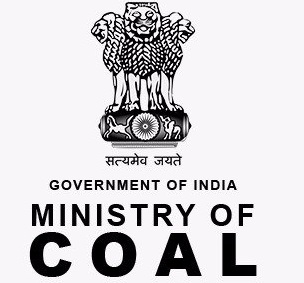Coal and Lignite PSUs under the guidance and supervision of Ministry of Coal not only increased their production levels over time to meet the growing energy demands of the nation but have also demonstrated their commitment to the local environment by implementing a range of mitigation and sustainable measures. As part of sustainable greening initiative, extensive plantation programs with native species are undertaken by Coal/Lignite PSUs across various sites, including overburden (OB) dumps, haul roads, mine peripheries, residential colonies, and available land outside the lease area. Collaborations with scientific institutions ensure that plantation efforts are backed by expertise, facilitating the development of eco-restoration sites and the implementation of multi-tiered plantation schemes.
 The plantation program adopts a diverse approach, encompassing shade-giving trees, species for forestry purposes, medicinal and herbal plants, fruit-bearing trees, timber value trees, and ornamental/avenue plants. Fruit-bearing species, along with medicinal plants, not only contribute to biodiversity conservation but also provide additional socio-economic benefits to local communities. Fruit bearing species such as Jamun, Imli, Ganga Imli, Bel, Mango, Sitaphal etc., Medicinal/Herbal Plants such as Neem, Karanj, Aonla (Amla), Arjun, etc., Timber Value Trees such as Sal, Teak, Shivan, Ghamar, Sissoo, Kala Sirus, Safed Sirus, Bamboo, Peltoforam, Babool, etc., Ornamental / Avenue Plants such as Gulmohar, Kachnar, Amaltas, Peepal, Jharul, etc. Moreover, close collaboration with state forest departments and corporations ensures that the best-suited species are selected for plantation, ensuring the success and sustainability of reclamation efforts.
The plantation program adopts a diverse approach, encompassing shade-giving trees, species for forestry purposes, medicinal and herbal plants, fruit-bearing trees, timber value trees, and ornamental/avenue plants. Fruit-bearing species, along with medicinal plants, not only contribute to biodiversity conservation but also provide additional socio-economic benefits to local communities. Fruit bearing species such as Jamun, Imli, Ganga Imli, Bel, Mango, Sitaphal etc., Medicinal/Herbal Plants such as Neem, Karanj, Aonla (Amla), Arjun, etc., Timber Value Trees such as Sal, Teak, Shivan, Ghamar, Sissoo, Kala Sirus, Safed Sirus, Bamboo, Peltoforam, Babool, etc., Ornamental / Avenue Plants such as Gulmohar, Kachnar, Amaltas, Peepal, Jharul, etc. Moreover, close collaboration with state forest departments and corporations ensures that the best-suited species are selected for plantation, ensuring the success and sustainability of reclamation efforts.
Over the past five years (FY 2019-20 to FY 2023-24 till January), Coal/Lignite PSUs have planted more than 235 lakh saplings over an area exceeding 10,784 Ha, thus enhancing the carbon sink significantly. To monitor reclamation performance, Coal/Lignite PSUs employs satellite surveillance.

Recently, Coal/Lignite PSUs have adopted the Miyawaki plantation method in its suitable command areas. The Miyawaki technique is a distinctive approach to afforestation and ecological restoration, pioneered by Japanese botanist Dr. Akira Miyawaki. Its primary goal is to enhance green cover within a limited area. This innovative method aims to establish a dense forest in just 10 years, a process that typically requires a century. It involves cultivating multi-layered forests that exhibit rapid growth and replicate the natural biodiversity found in native forests. Implementation of the Miyawaki technique entails planting two to four varieties of indigenous trees per square meter. Notably, the selected plant species are largely self-sustaining, eliminating the need for regular maintenance such as fertilization and watering. Within this method, trees achieve self-sustainability, reaching their height within a remarkable three-year timeframe. The interdependence among plants supports growth each other, promoting overall health and vitality. As a result, trees exhibit a growth rate much faster than conventional methods and contribute for creating a heightened carbon sink.
 MCL adopted Miyawaki method in Kulda OCP of MCL at Subalaya village at Sundergarh range. DFO, Sundergarh is undertaking Miyawaki technique of plantation in 2 patches at 10 Ha at a density of 8000 saplings per Ha. Species planted in miyawaki forest in Kulda OCP is such as Arjun, Asan, Phasi, Sal, Bija, Karanj, Dhauda, Gamhar, Mahogany, Ashok, Patali, Chhatian, Dhuranj, Harra, Bahera, Amla, Guava, Mango, Jackfruit, etc. Further, Coal/Lignite PSUs have taken up about 15 Ha of Miyawaki plantation in and around coal mines in the current fiscal year.
MCL adopted Miyawaki method in Kulda OCP of MCL at Subalaya village at Sundergarh range. DFO, Sundergarh is undertaking Miyawaki technique of plantation in 2 patches at 10 Ha at a density of 8000 saplings per Ha. Species planted in miyawaki forest in Kulda OCP is such as Arjun, Asan, Phasi, Sal, Bija, Karanj, Dhauda, Gamhar, Mahogany, Ashok, Patali, Chhatian, Dhuranj, Harra, Bahera, Amla, Guava, Mango, Jackfruit, etc. Further, Coal/Lignite PSUs have taken up about 15 Ha of Miyawaki plantation in and around coal mines in the current fiscal year.
The sustainable greening initiative not only mitigate the ecological impact of mining activities but also contribute to the restoration of biodiversity, enhancement of ecosystem services, creating carbon sinks, providing livelihood opportunities for local communities and promotion of sustainable development. By leveraging scientific expertise, community engagement, and innovative methods like Miyawaki plantation, Coal/Lignite PSUs are creating a legacy of green, resilient landscapes for future generations.
INTERNATIONALMARITIMESEMINARN1OO.jpg) The International Maritime Seminar, which was a pivotal component of MILAN 2024, proved to be a convergence of global maritime excellence. The seminar served as a platform for collaboration, synergy, and growth among nations across the oceans.
The International Maritime Seminar, which was a pivotal component of MILAN 2024, proved to be a convergence of global maritime excellence. The seminar served as a platform for collaboration, synergy, and growth among nations across the oceans.


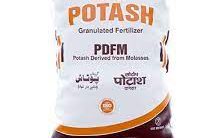
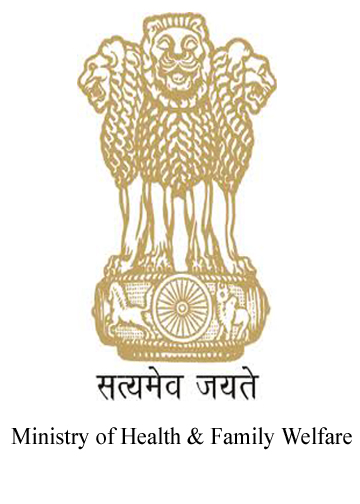
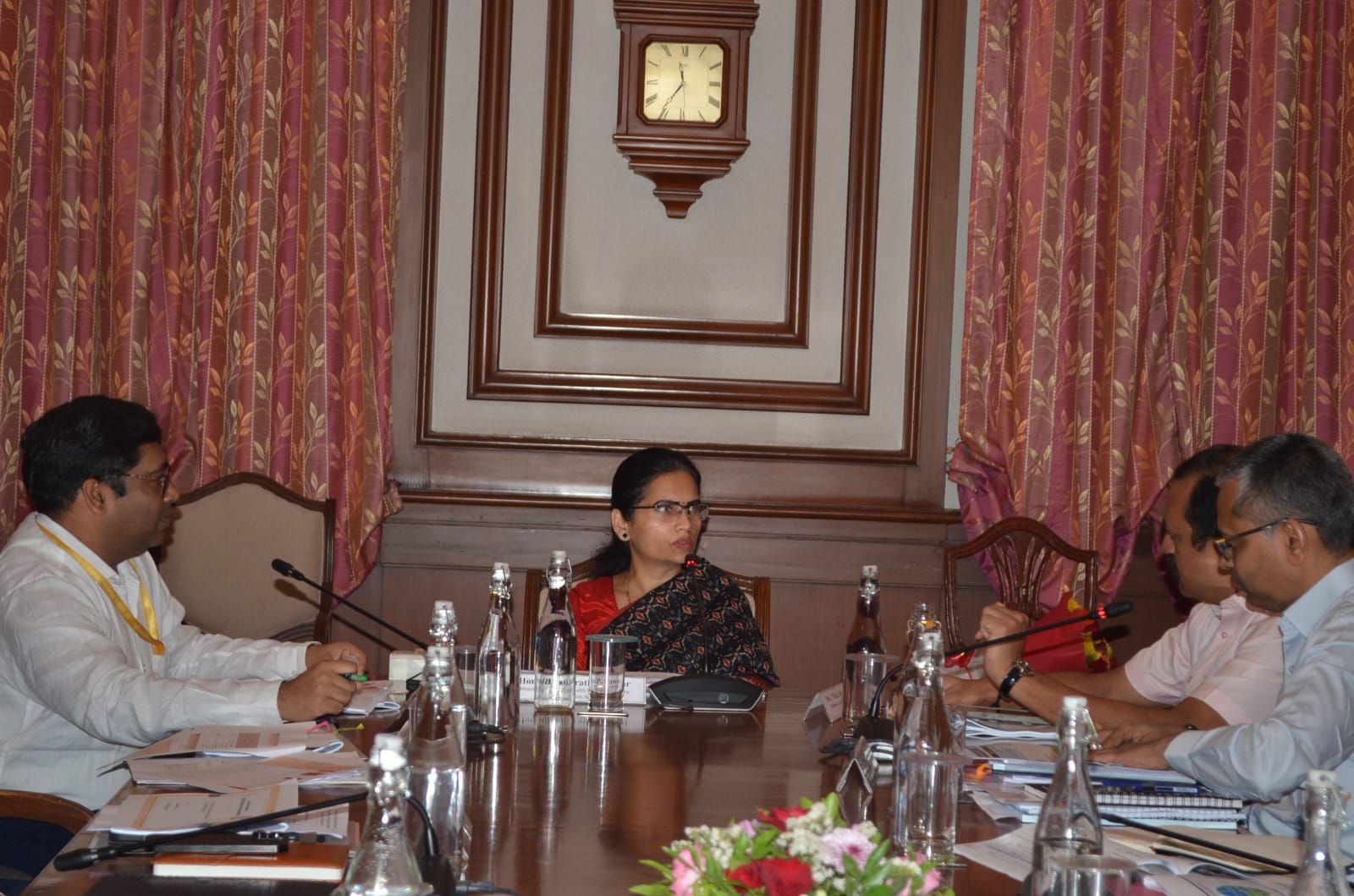 Dr. Bharati Pawar also said that medical laboratories are being constructed in the state under the Prime Minister Ayushman Bharat Health Infrastructure Mission (PM- ABHIM) scheme. This facility has been created in four districts of the state. Further, 18 critical care blocks are being constructed under PM-ABHIM in the state of Maharashtra. There are 11 thousand 52 health centres in Maharashtra which have now been converted into Ayushman Arogya Mandir. These centres will have new facilities like diabetes screening, three types of cancer screening etc.
Dr. Bharati Pawar also said that medical laboratories are being constructed in the state under the Prime Minister Ayushman Bharat Health Infrastructure Mission (PM- ABHIM) scheme. This facility has been created in four districts of the state. Further, 18 critical care blocks are being constructed under PM-ABHIM in the state of Maharashtra. There are 11 thousand 52 health centres in Maharashtra which have now been converted into Ayushman Arogya Mandir. These centres will have new facilities like diabetes screening, three types of cancer screening etc.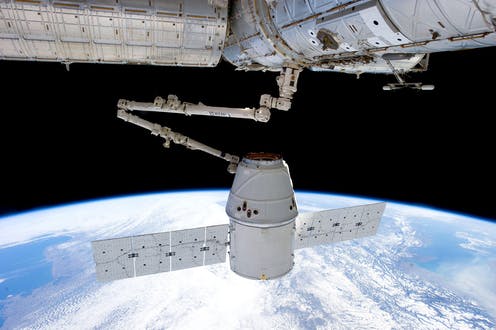
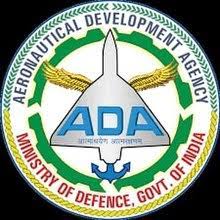
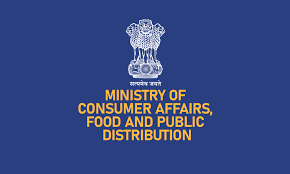
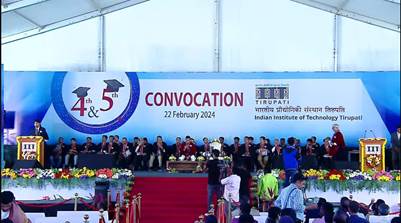
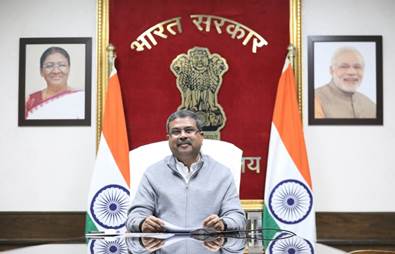
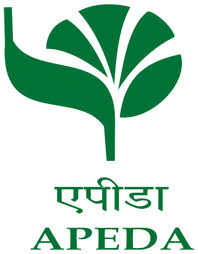

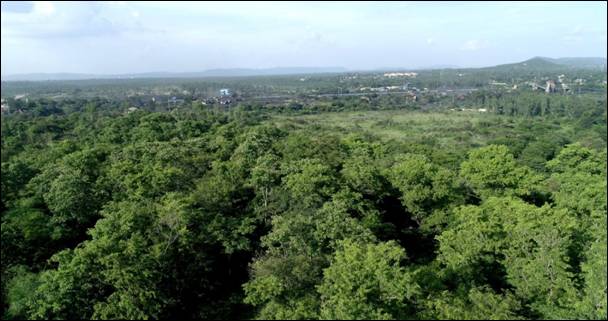 The plantation program adopts a diverse approach, encompassing shade-giving trees, species for forestry purposes, medicinal and herbal plants, fruit-bearing trees, timber value trees, and ornamental/avenue plants. Fruit-bearing species, along with medicinal plants, not only contribute to biodiversity conservation but also provide additional socio-economic benefits to local communities. Fruit bearing species such as Jamun, Imli, Ganga Imli, Bel, Mango, Sitaphal etc., Medicinal/Herbal Plants such as Neem, Karanj, Aonla (Amla), Arjun, etc., Timber Value Trees such as Sal, Teak, Shivan, Ghamar, Sissoo, Kala Sirus, Safed Sirus, Bamboo, Peltoforam, Babool, etc., Ornamental / Avenue Plants such as Gulmohar, Kachnar, Amaltas, Peepal, Jharul, etc. Moreover, close collaboration with state forest departments and corporations ensures that the best-suited species are selected for plantation, ensuring the success and sustainability of reclamation efforts.
The plantation program adopts a diverse approach, encompassing shade-giving trees, species for forestry purposes, medicinal and herbal plants, fruit-bearing trees, timber value trees, and ornamental/avenue plants. Fruit-bearing species, along with medicinal plants, not only contribute to biodiversity conservation but also provide additional socio-economic benefits to local communities. Fruit bearing species such as Jamun, Imli, Ganga Imli, Bel, Mango, Sitaphal etc., Medicinal/Herbal Plants such as Neem, Karanj, Aonla (Amla), Arjun, etc., Timber Value Trees such as Sal, Teak, Shivan, Ghamar, Sissoo, Kala Sirus, Safed Sirus, Bamboo, Peltoforam, Babool, etc., Ornamental / Avenue Plants such as Gulmohar, Kachnar, Amaltas, Peepal, Jharul, etc. Moreover, close collaboration with state forest departments and corporations ensures that the best-suited species are selected for plantation, ensuring the success and sustainability of reclamation efforts.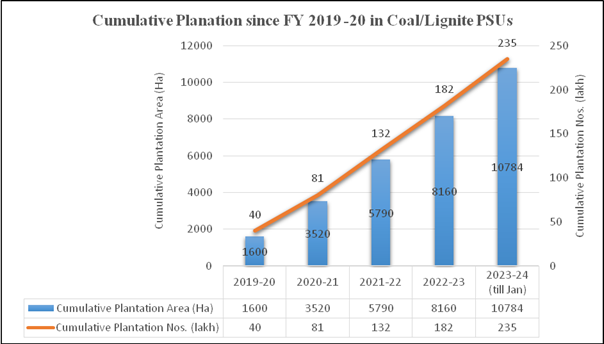
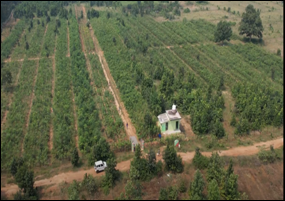 MCL adopted Miyawaki method in Kulda OCP of MCL at Subalaya village at Sundergarh range. DFO, Sundergarh is undertaking Miyawaki technique of plantation in 2 patches at 10 Ha at a density of 8000 saplings per Ha. Species planted in miyawaki forest in Kulda OCP is such as Arjun, Asan, Phasi, Sal, Bija, Karanj, Dhauda, Gamhar, Mahogany, Ashok, Patali, Chhatian, Dhuranj, Harra, Bahera, Amla, Guava, Mango, Jackfruit, etc. Further, Coal/Lignite PSUs have taken up about 15 Ha of Miyawaki plantation in and around coal mines in the current fiscal year.
MCL adopted Miyawaki method in Kulda OCP of MCL at Subalaya village at Sundergarh range. DFO, Sundergarh is undertaking Miyawaki technique of plantation in 2 patches at 10 Ha at a density of 8000 saplings per Ha. Species planted in miyawaki forest in Kulda OCP is such as Arjun, Asan, Phasi, Sal, Bija, Karanj, Dhauda, Gamhar, Mahogany, Ashok, Patali, Chhatian, Dhuranj, Harra, Bahera, Amla, Guava, Mango, Jackfruit, etc. Further, Coal/Lignite PSUs have taken up about 15 Ha of Miyawaki plantation in and around coal mines in the current fiscal year.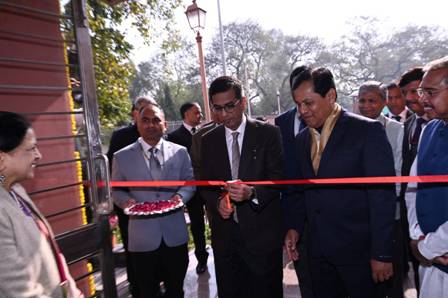
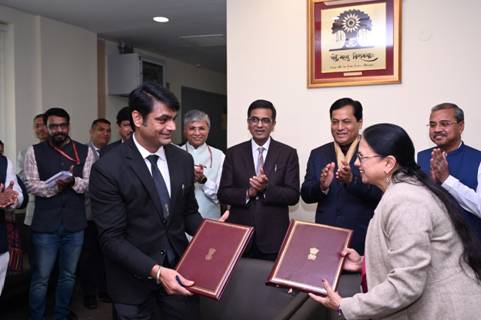 On this occasion, an MoU regarding establishing, operationalizing and providing expert services at the Ayush Holistic Wellness Centre was also signed between the Supreme Court and the All-India Institute of Ayurveda.
On this occasion, an MoU regarding establishing, operationalizing and providing expert services at the Ayush Holistic Wellness Centre was also signed between the Supreme Court and the All-India Institute of Ayurveda.